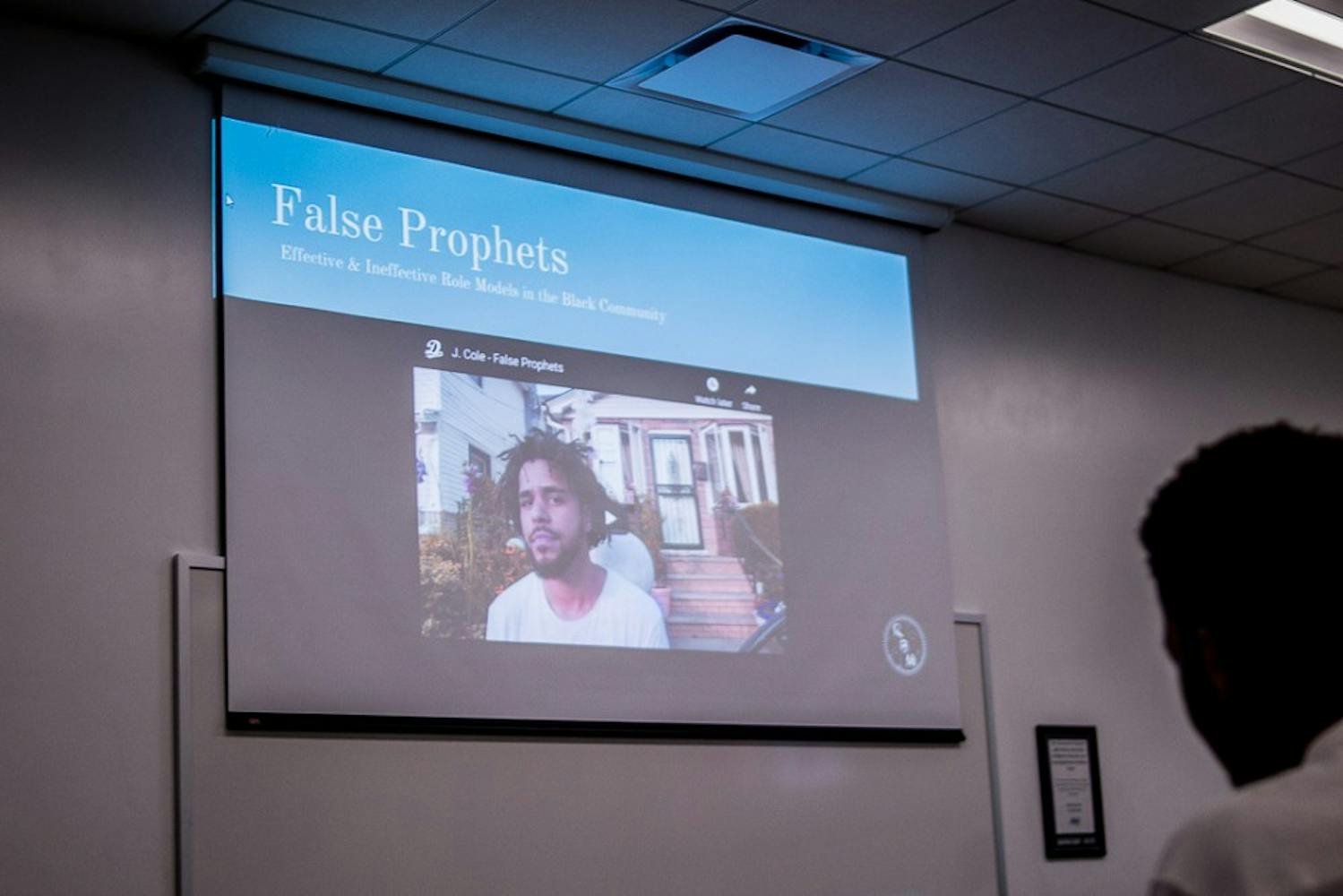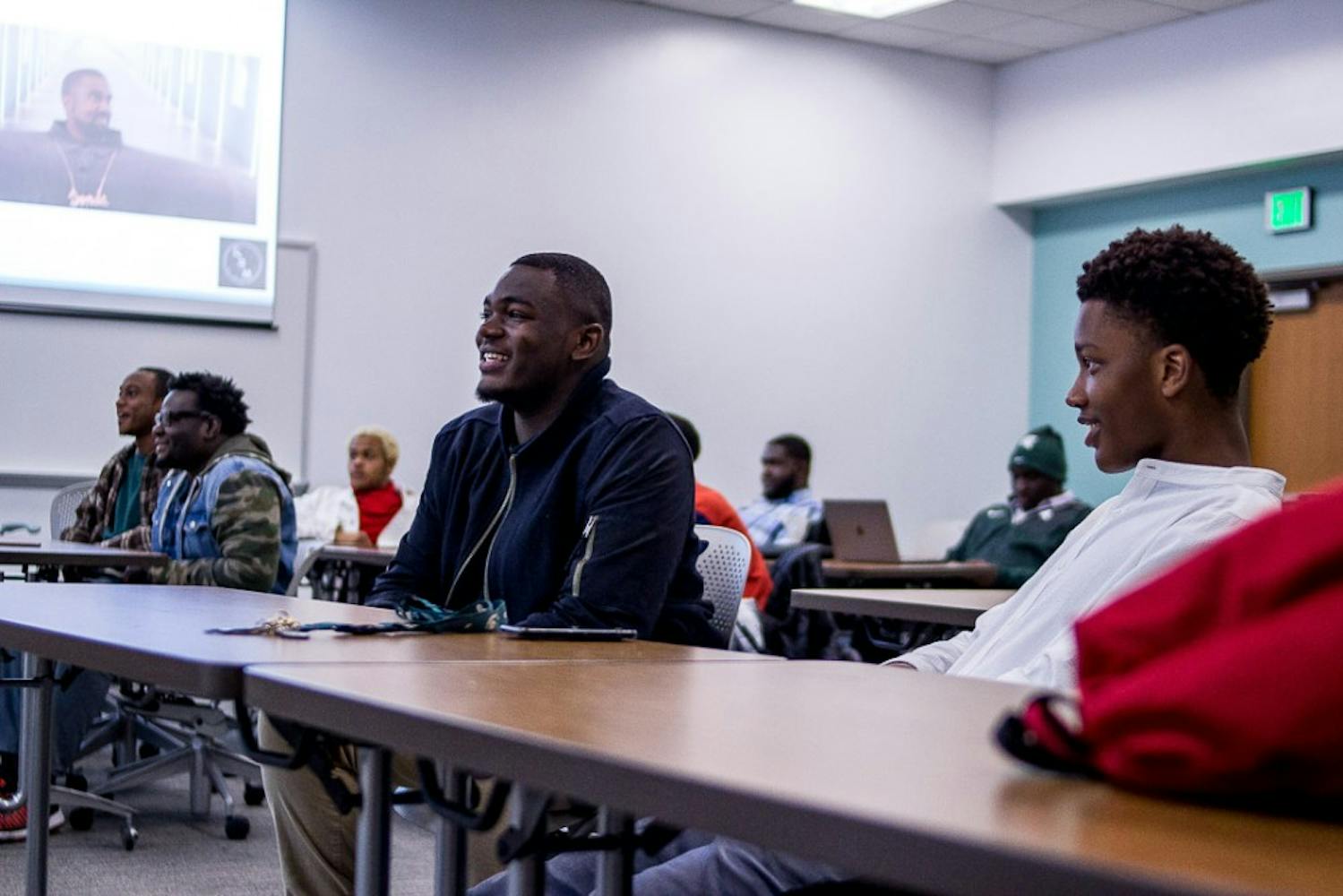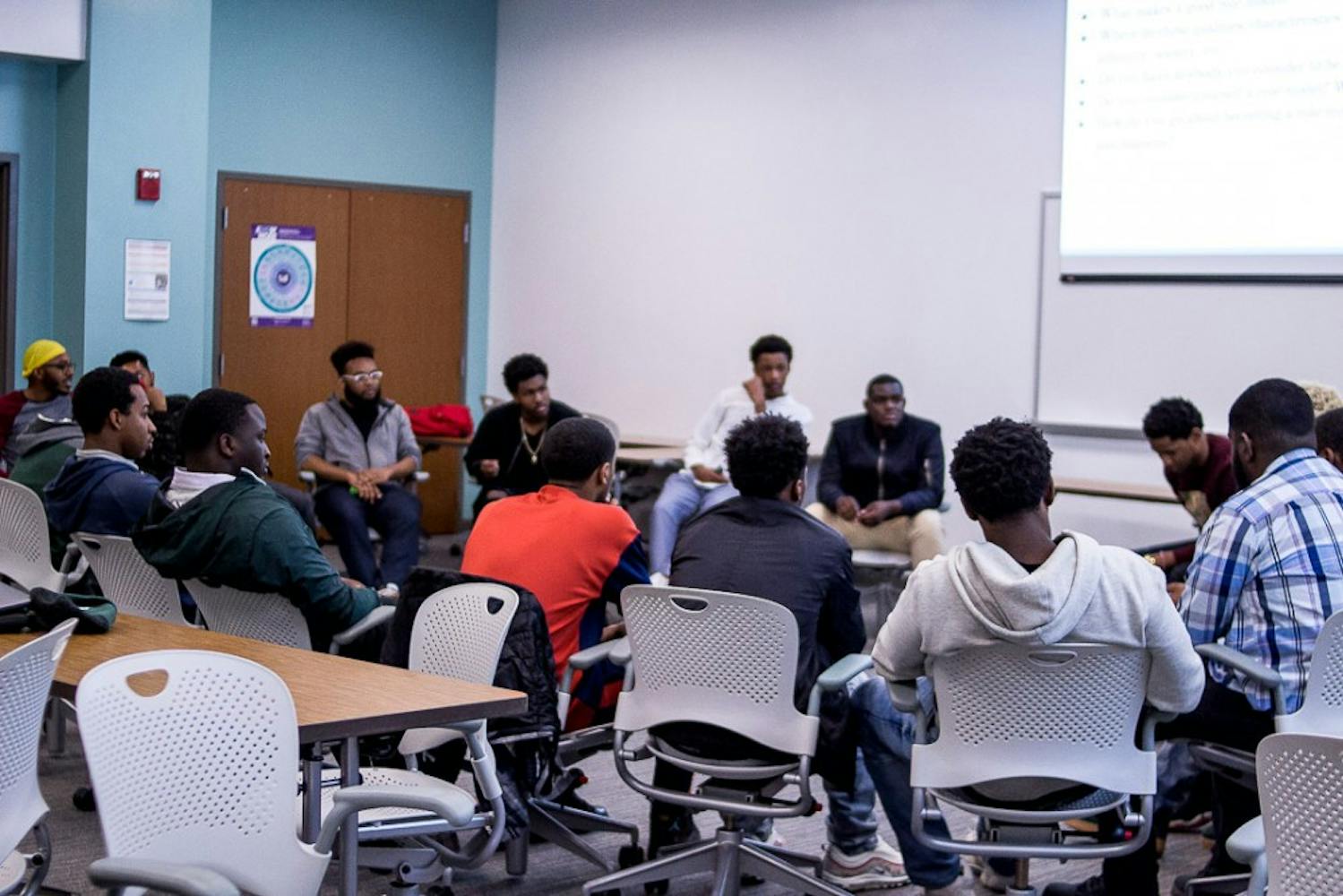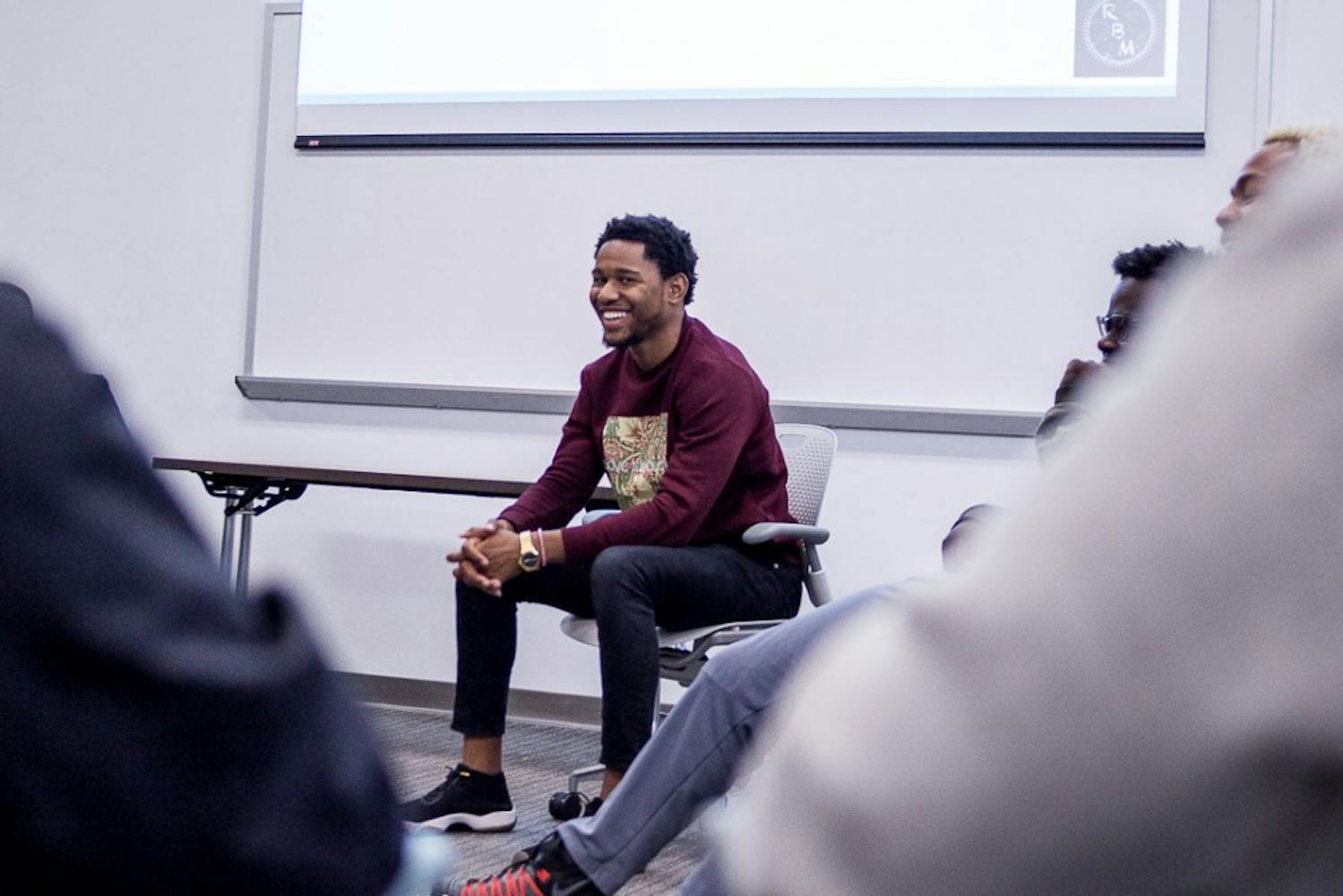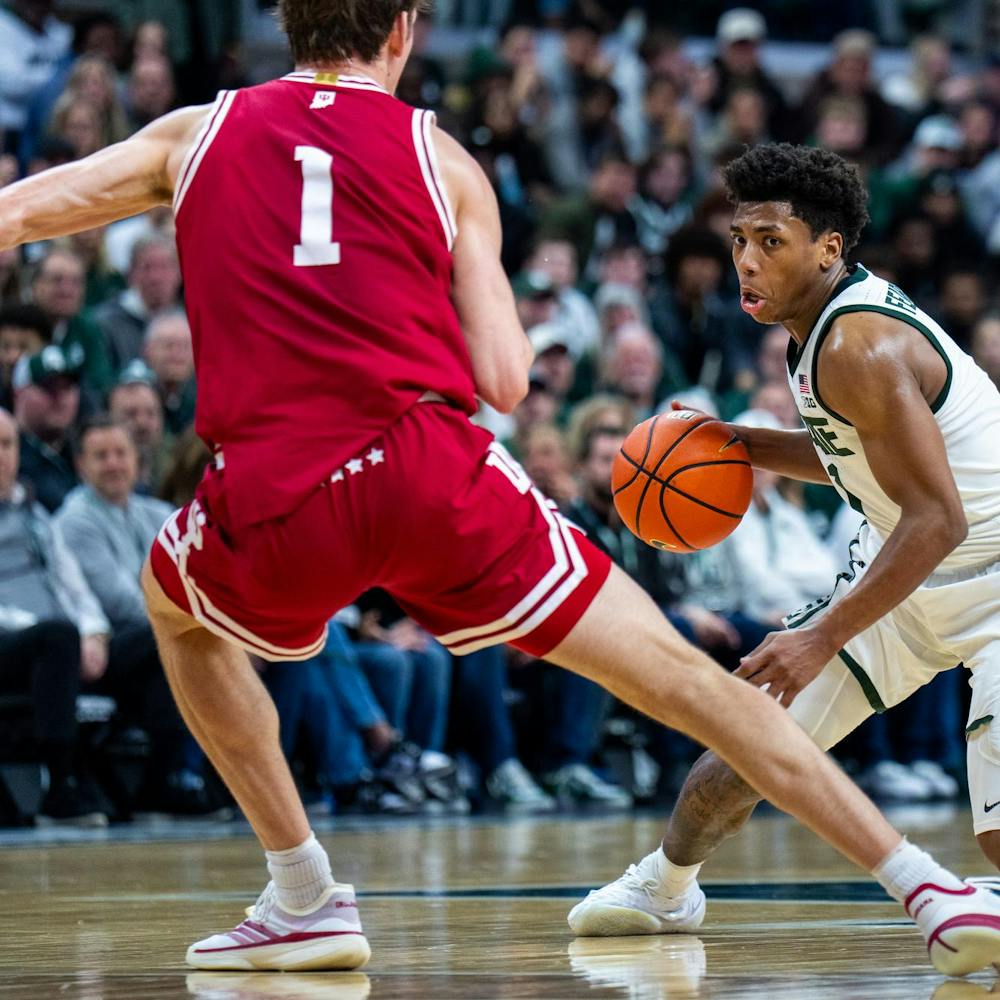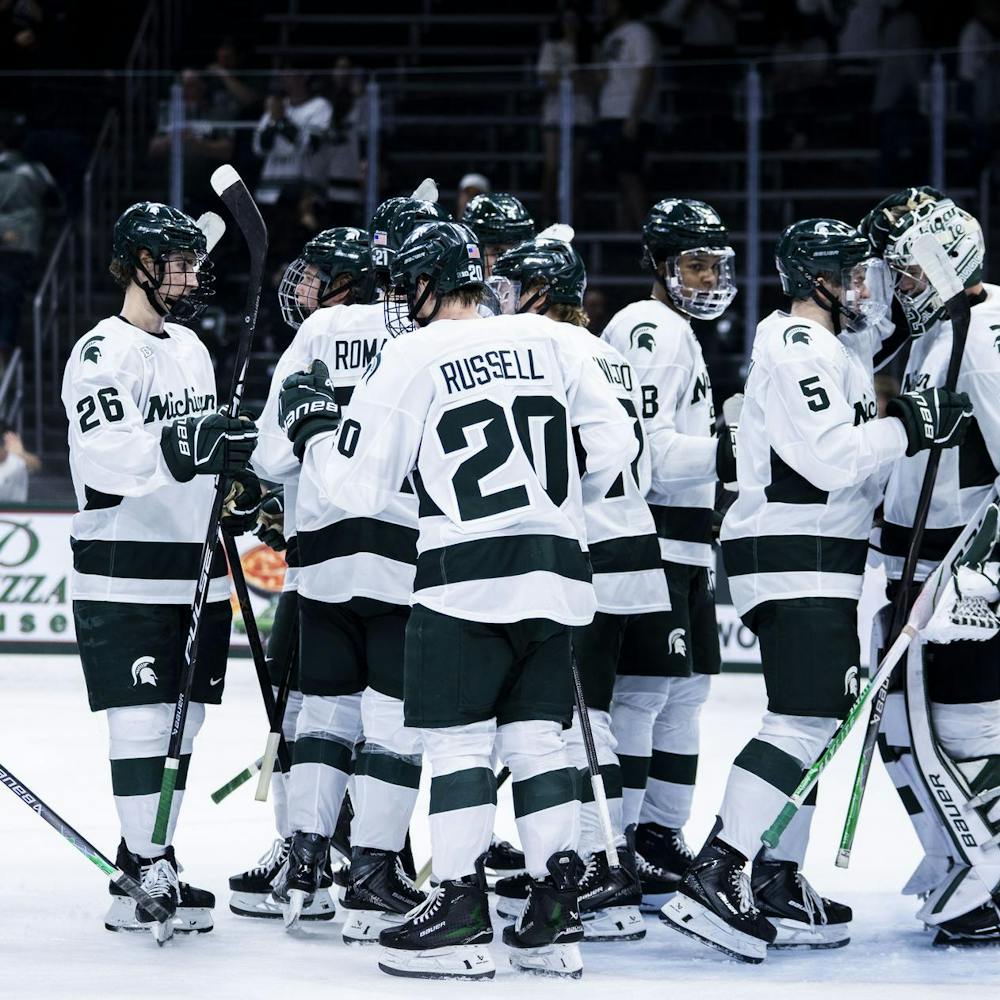Martin Luther King Jr. once said that life's most important question is "What are you doing for others?"
And by having that quote on their website, members of a mentorship program called Rising Black Men (RBM) keep that at the forefront of their minds. Since its inception in 2017, the mentorship group has been providing help to young black men in the Michigan State and Lansing communities.
The purpose of the program? Help its members connect academically and socially to other people.
Education senior Tim Herd, the founder and president of RBM, got the idea from research he conducted about closing the opportunity gap for black males in K-12 education.
“I just saw a lot of adverse effects that were affecting young black men as they transition to college,” Herd said.
Herd said students might experience culture shock or exclusion at predominantly white institutions or universities.
“I kinda wanted to find a solution for that, specifically for retention rates,” Herd said.
What started off as a new MSU student organization in 2017-18 school year has grown to include a large number of members who have made notable achievements in academics over the past year.
“We're also able to have our retention rate be 100 percent from first semester to second semester,” Herd said.
The cumulative GPA for the group's freshmen was 2.95 and 3.43 for upperclassmen last year. Herd’s goal is to raise it to 3.5 for upperclassmen and 3.0 for underclassmen this year.
“But it's still above the national average,” Herd said. “The two things that I want my guys to achieve is academically, that's the first piece, and then socially.”
RBM helps its members socially by expanding their social capital. They do that by connecting students with faculty and providing them with job opportunities. The ultimate goal is to prepare them for when they leave MSU.
Besides their growth in size and GPA, the program has also made progress in terms of people feeling like they belong.
“Just establishing ourselves on campus and becoming more well known around the community, not just the black community, but MSU community as a whole, because we don't want to be pigeonholed as just, 'Oh, you're just that group,'" Herd said. "We interact with all types of people from different backgrounds, different socioeconomic statuses, religion, ethnicities, you name it."
Accounting senior Donyea Freeman, the vice president of the organization, found out about the group during last year's Spartan Remix. He got the feeling the group was transparent, and from that he said it was very easy to feel included.
“I came on board, went to a couple meetings and I was instantly intrigued, wanted to join and do everything I could do because I really enjoy community service and giving back to the community and helping out any way I can,” Freeman said.
The mentorship has helped Freeman learn to utilize his time and provides him a better view of life.
Chemistry senior Daniel Babayode knew Herd personally before RBM existed and was interested in the idea of forming a group.
“We didn't have that when we were coming up here at Michigan State, there wasn't really anybody to help,” Babayode said. “Having an organization like that, being able to give back to people who actually use the resources that we're giving, that was really important to me.”
As a mentor, Babayode said he was impressed by how open the mentees were to feedback.
Support student media!
Please consider donating to The State News and help fund the future of journalism.
“I didn't think young males from Detroit or any urban city would really want advice from older people,” Babayode said. “I thought they would kind of be like ‘I know how to do this,’ ‘I can do it on my own,’ that's kind of how I was as an 18-year-old."
But he was pleasantly surprised.
"I didn't think they would really be receptive and open to mentorship, but that was really surprising to me that they would be able to be open to that," Babayode said.
Herd's goal for the upcoming year is to expand. He wants to do so by starting chapters at different universities.
“Right now I'm in the process of starting one with the University of Detroit Mercy and also University of Michigan-Ann Arbor,” Herd said.
It's free to join the program, save for one fee interested individuals have to prepare for.
“The fee is love,” Herd said. “As long as you show up and show love, I mean, that's the most important thing.”
A previous State News feature on Rising Black Men can be read here.
Discussion
Share and discuss “Rising Black Men mentorship program has been offering help for a year ” on social media.
